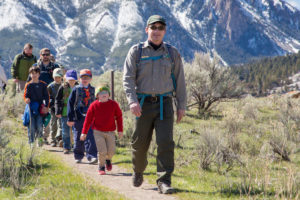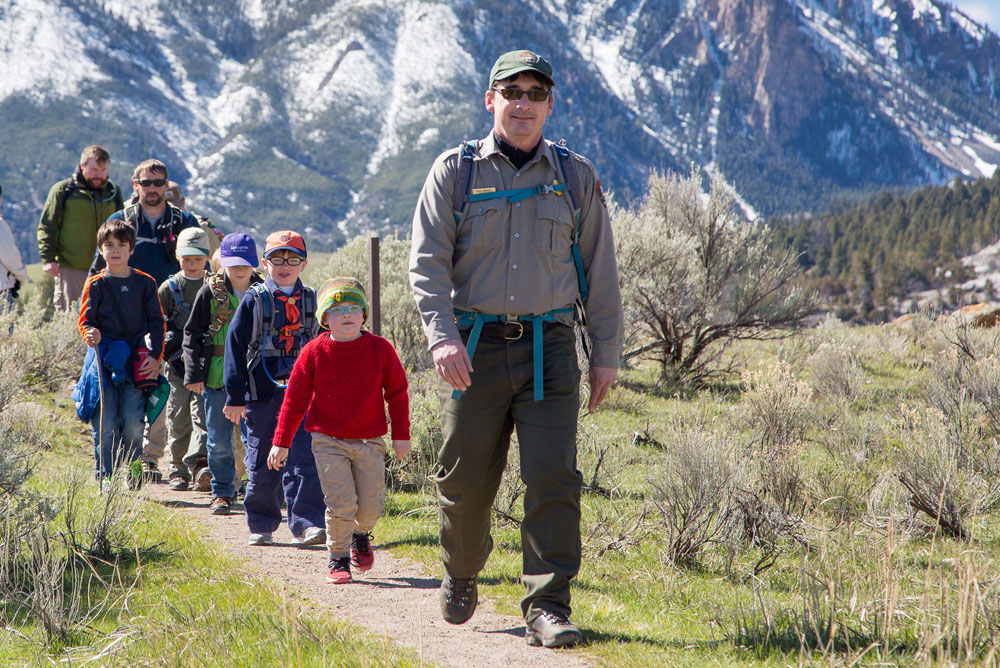Disclaimer: The information on our website is provided for general information purposes only. We make no representations or warranties of any kind, express or implied, about the completeness, accuracy, reliability, suitability or availability with respect to the website or the information contained on our website for any purpose. Any reliance on such information is therefore strictly at your own risk and we are not liable for any damages or losses arising out of or resulting from your reliance on any information contained on our website.
A park ranger works at a public park such as a national park or state park. Additionally, they provide historical information to visitors through lectures or tours. Park rangers can also be called park naturalists, education specialists, park activities coordinators, or interpretive naturalists. Next, watch a video on what a park ranger does.
How to Become a Park Ranger

Though a bachelor’s degree may not be a requirement to gain a position as a park ranger, employers generally look for a blend of education and experience. According to O*NET OnLine, most park naturalists surveyed hold a bachelor’s degree. Additionally, few to on to gain their master’s degree.
It’s recommended to gain your bachelor’s degree in a related field and the Bureau of Land Management recommends courses that cover some of the following topics: natural resource management, natural sciences, earth sciences, history, archeology, anthropology, park and recreation management, law enforcement/police science related to the protection of public lands, social sciences, museum sciences, or other closely related subjects pertaining to the management and protection of natural and cultural resources. You can visit the National Park Service website (link opens in a new tab) to learn more about what they look for in candidates and how to apply.
Job Description of a Park Ranger
Park rangers have a variety of duties at a park. Educating the public though is probably one of the most important. These professionals are experts in their park’s history, wildlife, and plants. They often provide tours for the public or give lectures on specific topics. Rangers may also help with other visitor services as well such as giving directions, providing recommendations, and ensuring the public is safe as well as the wildlife in the park.
Free Teacher and Student Resources
The National Park Service has webcams in Yellowstone as well as virtual tours of Yellowstone that you can checkout anytime. This is great for teachers that want to bring a National Park to their students.
Park Naturalist Career Video Transcript
Park naturalists establish a connection between parks and the public. They educate park visitors, student groups, and others about the natural bounty, history, scientific opportunities, and ecological diversity of the country’s local, state, and national parks. Park naturalists develop presentations, hands-on demonstrations, and interactive programs that help audiences get familiar with the park, everything from its geological formations and plants to the creatures who make their homes there. Whether by visiting schools to demonstrate how beavers construct their dams and lodges developing an exhibit that allows visitors to explore a model of bird habitats or leading an overnight trip through the park, a park naturalist aims to get people interested in and excited about the natural world.
Naturalists must combine a passion for the environment with the presentation skills and public relations abilities that allow them to make a connection with the public. They answer many questions each day, explain regulations, and respond to emergencies in the park. Many naturalists rely on teaching experience to prepare them. Typically becoming a park naturalist requires a bachelor’s degree in environmental education or biology. Full-time work is not easy to come by and many naturalists start out as volunteers or seasonal workers.
Article Citations
National Center for O*NET Development. 19-1031.03. O*NET OnLine. This page includes information from O*NET OnLine by the U.S. Department of Labor, Employment and Training Administration (USDOL/ETA). Used under the CC BY 4.0 license. O*NET® is a trademark of USDOL/ETA. RethinkOldSchool, Inc. has modified all or some of this information. USDOL/ETA has not approved, endorsed, or tested these modifications.
The career video is in the public domain from the U. S. Department of Labor, Employment and Training Administration.
The park ranger image is in the public domain from the National Park Service.

